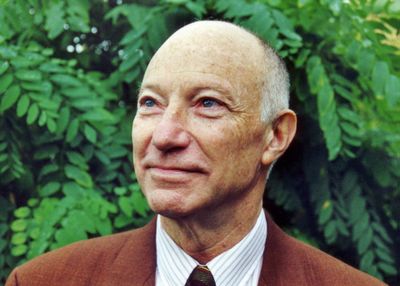Allegro has handle on Handel’s ‘Messiah’
Biggs, Dutton celebrate group’s 40th season with classic performance

Concert series come and go. But David Dutton and Beverly Biggs began introducing early music performances in Spokane 40 years ago, and they are still at it.
On Tuesday, oboist Dutton and harpsichordist Biggs will celebrate their 40th season of Allegro Baroque & Beyond – and the 250th anniversary of the death of George Frideric Handel – with a performance of “Messiah,” easily the most popular of all Handel’s works.
The performance will bring Biggs, who now lives in Durham, N.C., and Dutton together with performers who had appeared on both their previous Connoisseur Concerts and subsequent Allegro series.
Among the guest artists are the eminent Dutch baritone Max von Egmond, soprano Nancy Zylstra, violinist Stanley Richie and conductor Richard Sparks.
Why another “Messiah”?
“We wanted to get together some of the people who helped us bring early music to Spokane,” Dutton says. “So it’s kind of a family reunion and a celebration of 40 years we’ve been doing music here. Plus it is the 250th anniversary of the death of Handel.
“Besides, ‘Messiah’ has never been done here the way we’re doing it,” he says. “We are doing all of the movements, since the flow of one number into another is broken up if you take things out just to make it shorter.
“We were really pleased that Max von Egmond wanted to be at part of this performance,” Dutton adds. “He is officially ‘retired,’ but he wanted to come back to Spokane and get together with old friends he had worked with here more than 25 years ago.”
Zylstra divides her time between a vocal studio in Seattle and teaching summers at the Baroque Institute at Oberlin College-Conservatory
Along with Zylstra and Von Egmond, other vocal soloists include soprano Rebekah Gilmore and alto AnnMarie Darrow from Seattle, and tenor James Brown from the faculty of Pacific Lutheran University in Tacoma.
“We will have the soloists sing in the choir,” Dutton says. “That’s the way it was done by Handel, but it is almost unheard of to see it done that way now.”
Sparks, the conductor of ProCoro in Edmonton, Alberta, will conduct an orchestra of 19 and a choir of approximately the same size, an ensemble like that Handel used.
They will use historical instruments tuned to baroque pitch, nearly a half-step below that used in modern orchestras.
“We’re using some local instrumentalists, such as the trumpet players William Berry and David Turnbull and timpanist Barbara Curtis,” Dutton says. “And we will also have some musicians from the Seattle Baroque Orchestra and the Tudor Choir from Seattle.”
Handel’s “Messiah” has a seemingly unbreakable connection in North America with the Christmas season. But it was written for and first performed during the Easter season.
Tuesday’s performance will celebrate not only the 250th anniversary of its composer’s death, but the 267th anniversary of the oratorio’s first performance – almost to the day. The first performance in Dublin took place on April 13, 1742.